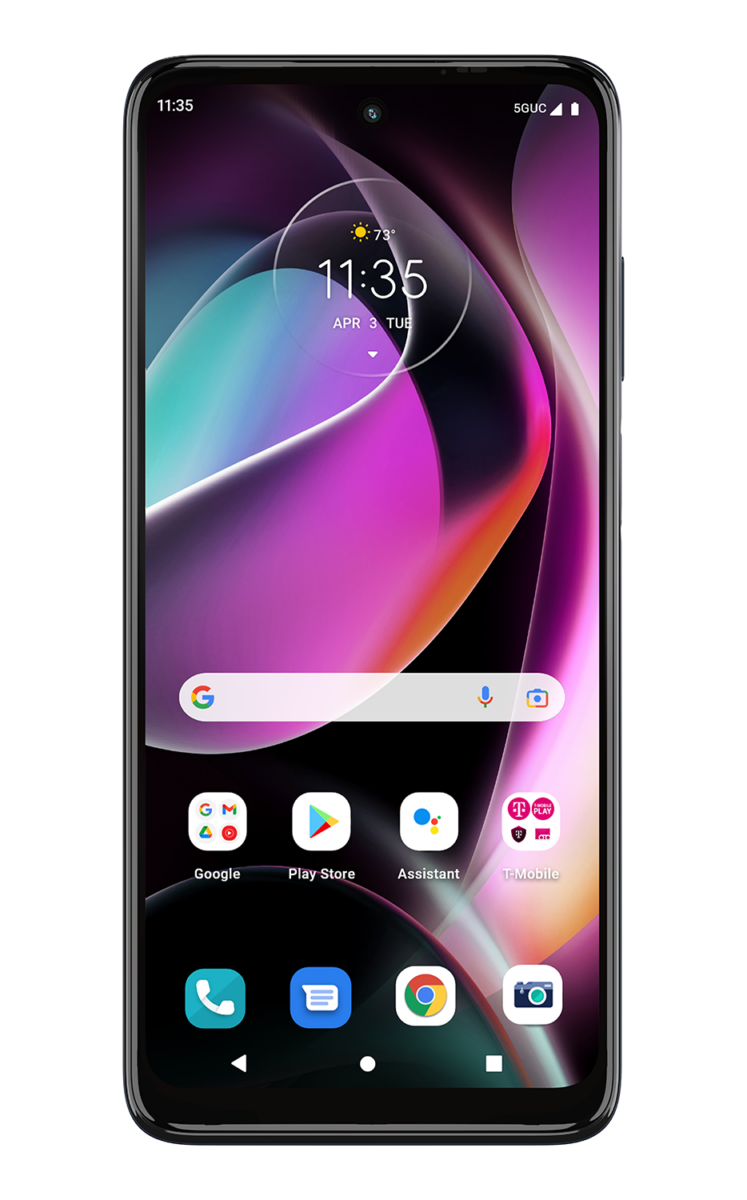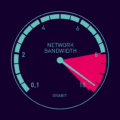Are you a T-Mobile customer who is concerned about your internet speeds being throttled? If so, you’re not alone. Many T-Mobile customers are finding their internet speeds are being slowed down due to the company’s policy of bandwidth throttling. In this blog post, we’ll look at what T-Mobile has to say about throttling, how it affects your internet speed, and what you can do to prevent it.
Bandwidth throttling is the practice of slowing down the speed at which data travels over the network. It is done by ISPs (Internet Service Providers) for various reasons, including congestion control and preventing illegal activities. In most cases, throttling will reduce your connection speed by a certain percentage, meaning that if you were getting 100Mbps before, you may now only get 80Mbps or less.
T-Mobile states on its website that it will “occasionally manage network traffic in order to provide an optimal experience for all customers”. This means that during times of high network usage, they may slow down speeds for some customers in order to keep the network running smoothly for everyone. They don’t specify how this works in detail but it appears that they use a combination of IP address filtering and traffic shaping techniques to manage traffic on their networks.
There are a few ways that you can try to prevent T-Mobile from slowing down your connection speed. The first is to sign up for a VPN service such as NordVPN or ExpressVPN. These services encrypt your internet traffic and mask your IP address so that your ISP can’t tell what you are doing online and won’t be able to throttle your connection as easily. Another option is to use a proxy server, which will also hide your IP address so that your ISP won’t be able to tell who you are or what type of traffic you are sending over its network. Finally, if none of these options work for you then consider switching ISPs or upgrading to one of T-Mobile’s Home Internet plans with unlimited data and no data caps in place.
it’s important for all T-Mobile customers to be aware of their policies regarding bandwidth throttling and take steps to protect themselves from being affected by it negatively. By using a VPN service or proxy server and/or switching ISPs or upgrading plans where necessary, customers can ensure that they get the best possible connection speeds without having their bandwidth unnecessarily restricted by T-Mobile’s policies.

Stopping T-Mobile Throttling
If you want to prevent T-Mobile from throttling your internet speed, the best solution is to sign up for a virtual private network (VPN). VPNs encrypt your data and hide your IP address, preventing other users and services from seeing what you’re doing online. To get started with a VPN:
1. Choose a reputable VPN provider. We recommend NordVPN, but Surfshark and ExpressVPN are both great alternatives.
2. Download and install the VPN app for your device.
3. Run the VPN app and select a location of your choice.
4. Hit the Connect button and wait for the connection to be established (this should take a few seconds).
5. Once connected, your internet traffic will be encrypted and you should no longer experience any throttling from T-Mobile.
Investigating the Causes of Slow T-Mobile Home Internet
It is possible that your T-Mobile Home Internet is running slow due to a number of reasons, such as an overloaded network, insufficient bandwidth, or outdated hardware. To determine the exact cause of the issue, it is best to run some tests on your connection.
First, check your data usage. If you are using a Home Internet Lite plan, you may be exceeding the data limit for your plan and thus experiencing slower speeds. If this is the case, upgrade your plan to increase the amount of data available for use.
Second, use the T-Mobile Internet app to test your signal strength and find the best placement for your gateway. Poor signal strength can be a factor in slow speeds. If you cannot find a better place for your gateway, consider getting an external antenna or Wi-Fi extender to improve your signal strength.
Finally, check if any hardware needs updating or replacing. Outdated hardware can drastically reduce internet speeds due to its inability to keep up with modern demands. If necessary, upgrade your router or modem to ensure that it is able to provide you with fast and reliable internet service.
Stopping Internet Service Throttling
The best way to stop your internet service provider (ISP) from throttling your connection is to use a Virtual Private Network (VPN). A VPN is a secure tunnel between two or more devices that encrypts all incoming and outgoing data, hiding your IP address and browsing history from your ISP. This prevents them from seeing what websites you visit and applications you use, which means they can’t throttle your connection based on those activities.
You can also try using a proxy server, which will also hide your IP address so your ISP won’t be able to tell who you are. However, it’s important to note that proxies aren’t as secure as VPNs, so they may not be the right choice for sensitive information.
Another option is to switch ISPs. If you’re dealing with particularly egregious throttling, it may be worth looking into getting a new connection altogether.
Finally, keep an eye on your data usage and consider setting up alerts so that you know when you’re approaching certain thresholds. This will help you identify whether or not your ISP is throttling your connection in order to get you to purchase more data.
If all else fails, consider filing a complaint with the government or other relevant authorities about the issue of internet service providers throttling customers’ connections without reasonable cause.
Signs of Being Throttled
To determine if you are being throttled, it is important to run an internet speed test. There are many free tools available online that can help you do this. After running the test, compare your results to the broadband provider’s advertised speeds—if there is a significant discrepancy between the two, then it is likely that your connection is being throttled. Additionally, you can connect to a reputable Virtual Private Network (VPN) and run the speed test again to see if there is any improvement in your connection speeds. If so, then you may be experiencing throttling from your broadband provider.
Increasing T-Mobile Home Internet Speed
To increase your T-Mobile home internet speed, you should first check to make sure your Wi-Fi signal is strong and free from interference. You can do this by checking the strength of the signal on each device connected to your LTE Wi-Fi Gateway. If you see any weak signals, try moving your router closer or further away from any devices that may be causing interference. Additionally, you can change the Wi-Fi channel of your router to one that is less congested in order to improve the overall signal and increase your internet speed. Finally, be sure to update the firmware on your router regularly as this can also help improve performance and optimize speeds.
Actual Speed of T-Mobile Home Internet
The actual speed of T-Mobile 5G Home Internet will depend on several factors, including your location, signal strength and availability, time of day, and other factors. Generally speaking, customers can expect typical download speeds between 33-182 Mbps. This is perfect for streaming videos, surfing the web, working from home, or playing online games.
Maximum Number of Devices Allowed on T-Mobile Home Internet
T-Mobile Home Internet allows customers to connect up to 64 devices at once. With Wi-Fi 6 technology, customers can maximize their bandwidth and enjoy faster speeds, even when many devices are connected. Multi-user MIMO (Multiple Input Multiple Output) creates more capacity for all the users, so everyone can access the internet with improved individual speeds. Whether you’re streaming movies or playing online games, T-Mobile Home Internet has you covered with reliable connectivity for up to 64 devices.
Is T-Mobile Home Internet a Hotspot?
No, T-Mobile home internet is not a hotspot. A hotspot is a device that creates a wireless local area network (WLAN) from an existing internet connection. It typically uses Wi-Fi technology, allowing multiple devices to connect to the internet at the same time.
T-Mobile home internet is a fixed wireless service that delivers high-speed internet access over cellular towers. It can provide download speeds up to 100 Mbps and upload speeds up to 20 Mbps, all without having to use a physical cable or satellite dish. With this service, you can enjoy unlimited data with no data caps or overage charges. You’ll also get coverage in more places than traditional wired providers, making it great for rural areas where other services may be unavailable.
Conclusion
In conclusion, T-Mobile is a great option when it comes to mobile and home internet services. With unlimited data plans, high speeds, and no data caps, they offer customers great value for money. Their network coverage is also excellent and their customer service is top-notch. Thanks to the combination of these features, customers can enjoy fast and reliable internet without worrying about throttling or other issues. As such, people who are looking for a reliable mobile or home internet provider should definitely consider T-Mobile as an option.







